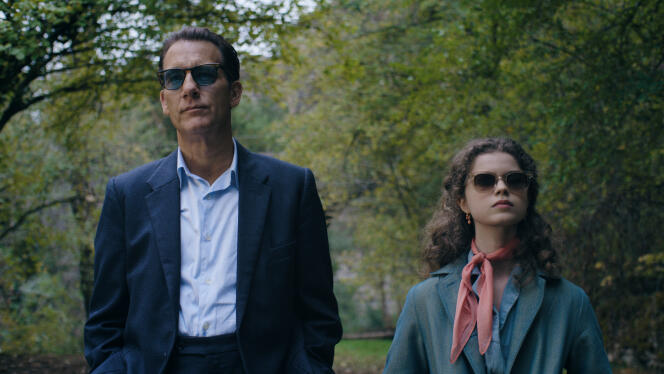


Both TV series are set in France – Paris for The New Look and a small town in the south for Mister Spade – and feature mainly French characters. But as they're international productions, English is the common language.
In The New Look, the use of Shakespeare's language is an accommodating convention, allowing an Australian, Ben Mendelsohn, to play the character of Christian Dior, and an Englishwoman, Maisie Williams, to play his little sister in the Resistance under Vichy France. Let us face it. After all, we have seen it all before. You'd be pressed to find a movie about ancient Rome in Latin. In Schindler's List (1993), all of Germany speaks English. And more recently, the Soviets in the miniseries Chernobyl (2019) express themselves unabashedly in the language of the enemy bloc.
However, we have come a long way: Streaming platforms are said to have helped make subtitles commonplace and digital television sets have enabled viewers to choose the original version for their evening movie, and dubbing has, in recent years, lost ground.
This makes the decision, in both series, to use English as a common denominator for the characters all the more astonishing. In The New Look, it is not so much the use of English-speaking actors in the roles of well-known French figures that is shocking as the linguistic contortions it forces French-speaking actors to perform. Juliette Binoche, as Coco Chanel, and Zabou Breitman, as Dior's assistant, are summoned to speak fluent English, albeit with a slight accent. To an international audience, the quirk may be a little more palatable, but to French viewers, it is simply disconcerting.
In Mister Spade, the choice of English as the main language already seems a little more natural, even if the American detective (a modern-day version of the character created by Dashiell Hammett) could, in all the time he has lived in France, have mastered the language a little better. But in trying too hard to facilitate the life of its main character, the series loses itself in the implausible: There is little chance that in this post-war rural France, cabaret-keepers, nuns and police officers would speak English so fluently. The same goes for the young orphan Sam Spade protects: Raised in France, the girl speaks perfect English. A little fragility, a little broken English, would no doubt have done no harm to this production whose fluidity of language bogs it down more than anything else.
All the more so as this bias reflects a cautiousness that is no longer warranted. At a time when some shows invent languages for the sake of the story (the most famous of which is Dothraki in Game of Thrones); when Lupin speaks French despite his show's international aims (and the fact that its showrunner is English); and when the most eagerly awaited production of the year, The Three-Body Problem (a new series from the creators of Game of Thrones), navigates fluidly between English and Mandarin, the restraint is surprising.
